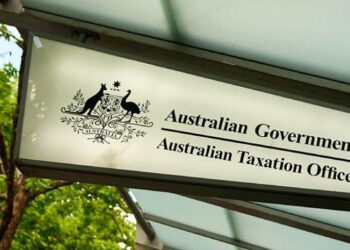Aaron Dunn, chief executive of Smarter SMSF, said in a recent online update that the ATO’s revised view in TR2013/5 around when a pension commences and ceases, specifically where the pension fails, is one of the most controversial to deal with in the new financial year.
“The impact of this revised view really comes to fruition now, where we have individuals that have not met the minimum pension for the previous year and what we will see from that for the 30 June 2025 financial year.”
Tim Miller, head of technical and education for Smarter SMSF, said the first thing to recognise is that there are “shortfalls and then there are shortfalls”.
“Now we have the Commissioner’s discretion, the compliance approach where, if your pension shortfall was less than one-twelfth and it’s the first time you’ve had a shortfall, then you can use the general powers of administration to self-assess that the shortfall doesn’t exist,” Miller said.
“[This is applicable] as long as that as soon as you recognise that shortfall you effectively catch it up immediately, either by applying the first payment from this current year to meet last year’s liability, or make an additional catch up.”
Miller said he would always recommend making the additional catch-up for the July payment to count towards July this year.
“Putting that aside, if you’ve got the shortfall that’s beyond one-twelfth, or you’ve had shortfalls in previous years and you can’t apply that that method, and in which instance, you have subsequently failed the pension standard because you’ve failed to ensure that the annual pension liability has been paid, in the Commissioner’s view, the pension ceases for tax purposes on 1 July of the year that you failed. It fails the pension standards on 30 June for transfer balance cap purposes.”
It is then necessary for the trustee to make a conscious decision, once they recognise that the pension has failed, to commute and then recommence the pension to enable them to start claiming exempt current pension income.
This is where the shift has come in the Commissioner’s view, as ordinarily, if the trustee failed that pension, it was previously an income tax issue and would be reset on 1 July to allow for that pension to continue.
“Now it comes down to some key wording around the concept of ensuring that the pension would continue, and off the back of the ATO definition, and a case it references within the ruling, that ultimately states that on the basis you can’t ensure that that pension will continue, there’s going to need to be a formal commutation of that income stream,” Dunn said.
“Naturally, that commutation can no longer occur at the end of that financial year that it would, in essence, allow for full tax exemption in the subsequent year.”
Miller said there are many other elements linked to the ruling, with one of the key ones being the point in time at which it is recognised that the minimum has not been paid.
“This is why we give a lot of focus pre-30 June to ensuring people have satisfied their liability. Of course, circumstances occur and people fail for all sorts of reasons, some by choice, some just by accident.”
“However, accidents don’t happen in the world of the Commissioner – you either have paid or you haven’t paid. It’s just then a matter of saying, ‘OK, we have to take our medicine’, and that medicine is a loss of ECPI and you have to act as quickly as you can to get the best benefit moving forward for your pensions.”
Dunn said trustees and advisers need to understand the steps needed to rectify the issue and to be conscious of the fact that the decision made is a formal commutation.
“Any commutation within that ruling needs to be prospective. Thinking you can go back to 1 July is not going to cut it in the Commissioner’s eyes, and this is where that loss of tax exemption can expand beyond the 12 months that we’ve had previously,” he said.
“Once that member’s made that conscious decision, you would then go into the fact that they are starting a fresh pension, and if you’ve done a lot of planning work throughout that period you may have contaminated some of that because that money is ultimately going to go back into a single accumulation interest as well.”


